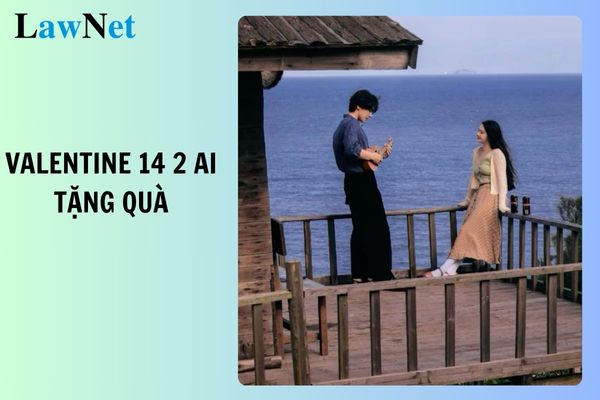What is the meaning of Valentine's Day on February 14? Who are the gift giver and receiver on this day? Are students in Vietnam prohibited from loving?
What is the meaning of Valentine's Day on February 14? Who are the gift giver and receiver on this day?
Valentine's Day on February 14 is a day dedicated to celebrating love and romance. Couples have to express their affection for each other through gifts, greetings, and gestures of love.
The origin of Valentine's Day on February 14 is associated with Saint Valentine, a priest who lived in the 3rd century in the Roman Empire. Legend has it that during the reign of Emperor Claudius II, the king prohibited young men from marrying so they could focus on fighting for the army.
However, Saint Valentine secretly organized weddings for couples in love. Upon discovery, he was arrested and executed on February 14, 269. Later on, the Catholic Church honored him as a symbol of true love, and February 14 became Valentine's Day worldwide.
There are two different perspectives on who gives gifts on Valentine's Day on February 14:
- According to Western views, both men and women can give gifts to each other.
- In Asian countries like Japan and Korea, on February 14, women give gifts to men, and men reciprocate on White Day, March 14.

What is the meaning of Valentine's Day on February 14? Who are the gift giver and receiver on this day? Are students in Vietnam prohibited from loving? (Image from the Internet)
Are students in Vietnam prohibited from loving?
According to Article 37 of the lower secondary school, upper secondary school and multi-level school charter issued with Circular 32/2020/TT-BGDDT, the prohibited acts for students are as follows:
Prohibited acts for students
1. Disrespect the dignity, honor or bodily integrity of teachers, officials and staff of their schools, other people and other students.
2. Act dishonestly in learning, examinations or admission process.
3. Buy, sell or use alcohol, tobacco, drugs, other stimulants, firecrackers or explosives.
4. Use mobile phones and other devices in class for purposes other than learning and without the teacher's permission.
5. Fight or disrupt public or school order or security.
6. Use or exchange cultural products that incite violence or contain indecent materials; use toys or play games that impede their own healthy development.
7. Students shall not commit other prohibited acts provided for by regulations of law.
Thus, there are currently no regulations prohibiting student from loving. However, students should prioritize their studies and love healthily without affecting their future, balancing between emotions and study responsibilities.
What are the rights of upper secondary school students in Vietnam?
According to Article 35 of the regulations issued with Circular 32/2020/TT-BGDDT, upper secondary school students are entitled to the following rights:
1. Receive comprehensive education with fairness, be provided with time, facilities, hygiene and safety to learn in class and self-learn at home, be informed of their education and training, and be able to use learning, cultural and sport equipment of their schools as per the law.
2. Receive respect, protection and fair and democratic treatment, complain to their schools and education authorities about decisions concerning themselves; transfer school with legitimate reason as per existing regulations; enter school before the compulsory starting age, skip a grade and study at an age higher than the compulsory attendance age according to regulations in Article 33 of this charter.
3. Participate in activities for development of their gifts in academic subjects, sports and art organized by their schools if able to.
4. Students eligible for social benefits, disadvantaged students and gifted students may receive sponsorship or other benefits as per the law.
5. Transfer school if eligible according to regulations following school transfer procedures stipulated by the Minister of Education and Training.
6. Enjoy other rights as per the law.

